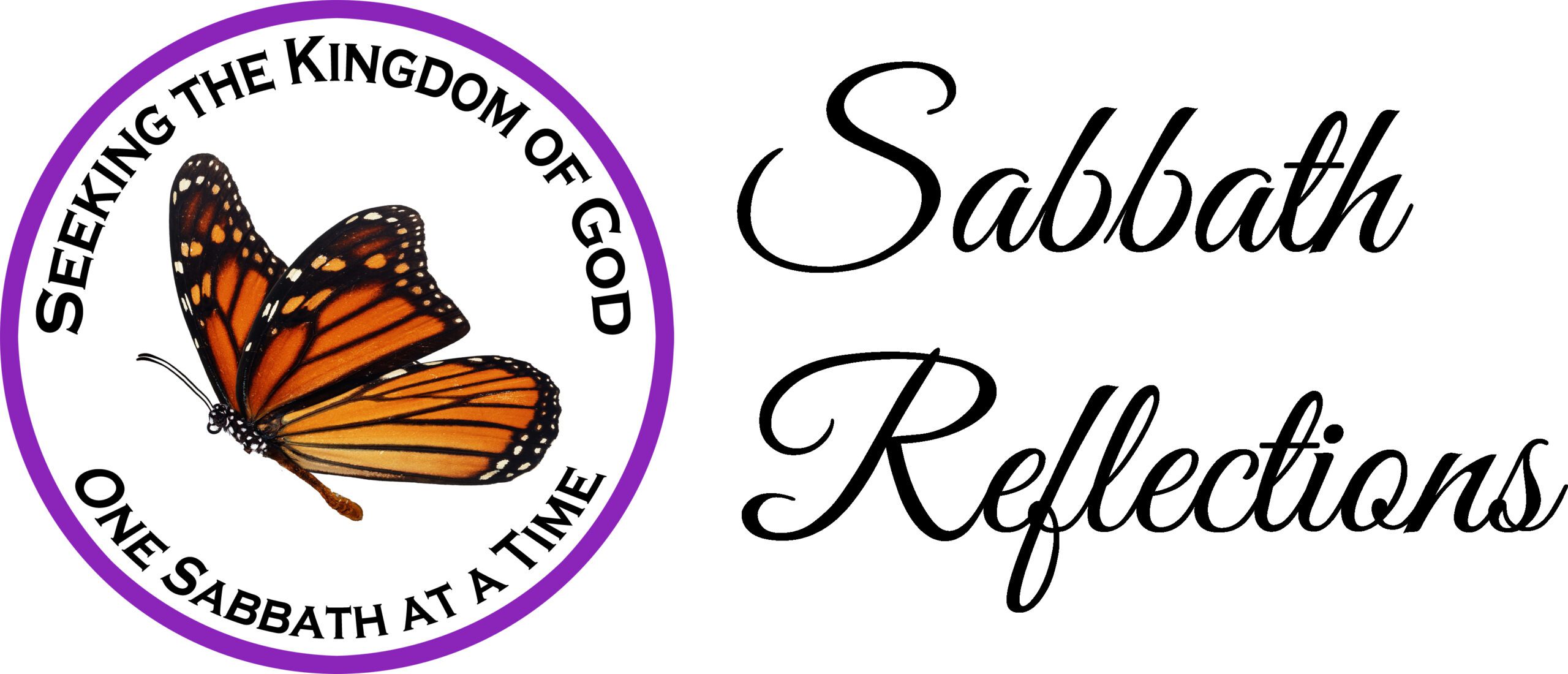SABBATH IS EVENING TO EVENING
By Steven Greene
Website: https://sabbathreflections.org
There is a false teaching spreading that the weekly Sabbath is only ~12 hours, beginning at sunrise and ending at sundown. The argument seems to be based upon the twice-used Greek word epiphosko in the NT. In this article, the following definitions will be used throughout:
DEFINITIONS:
Darkness = the absence of light.
Light = under illumination.
Day = one complete rotation of the earth (24 hours).
Night = the portion of a day between morning and evening that is in darkness (~12 hours).
Daylight = the portion of a day between evening and morning that is in light (~12 hours).
Evening = the beginning of night or the end of daylight.
Morning = the beginning of daylight or the end of night.
DAYS BEGIN & END AT EVENING
Darkness and light are not opposites; rather, darkness is the absence of light. Only darkness existed at the beginning of God’s work so evening and morning did not exist until after light was created. This is confirmed in Genesis 1:2, “darkness was upon the face of the deep. And the Spirit of God moved upon the face of the waters.” THIS MEANS THAT THE FIRST DAY OF GOD’S WORK BEGAN IN DARKNESS. It was when God began His work that determined the beginning of the 24-hour day. Each 24-hour day was described as:
GENESIS 1:5, 8, 13, 19, 23, 31 … the evening [H6153 = `ereb] and the morning [H1242 = boqer] were the {first, second, … sixth} day.
DEFINITIONS:
Heb. `ereb = evening: H6153 עֶרֶב `ereb (eh’-reɓ) n-m. dusk. [from H6150] KJV: + day, even(-ing, tide), night.
Heb. boqer = morning: H1242 בֹּקֶר boqer (bo’-ker) n-m. 1. (properly) dawn (as the break of day). 2. (generally) morning. [from H1239] KJV: (+) day, early, morning, morrow.
The appearance of the sun caused the earth to simultaneously be darkness on one side and light on the other because the sun is located at a fixed point from the earth and the earth is a sphere illuminated by it. If God were looking “down” on the earth, He would see the darkness/light terminator (the line formed by the demarcation of darkness and light). The creation of light also brought into existence both evening (Heb. `ereb = the beginning of the time period called darkness) and morning (Heb. boqer = the beginning of the time period called light) because half the earth is in sunlight and the other half in darkness.
At a fixed point on the earth, the rotation of the earth would produce periods of darkness and light about every 12 hours. The transition from darkness to light and back to darkness takes 24 hours, completing a single rotation of the earth. This is the definition of a (24-hour) day. The first day began in darkness because light had not yet been created; therefore, there was no evening (`ereb) to mark the beginning of the day. Since each day is 24 hours, the first day was measured 24 hours after God began His work in the darkness and ended when daylight turned back into darkness at evening. This is why “evening” is the beginning of a day. So, the order of “evening and morning” is intentional and important in Genesis 1. It specifies a day begins with ~12 hours of darkness and ends with ~12 hours of light. That being the case, every day begins at evening (`ereb) and the halfway point is 12 hours later when morning (boqer) occurs. This is plainly confirmed by Daniel:
DANIEL 8:14 And he said to me, “Unto two thousand, three hundred evenings [H6153 = `ereb] and mornings [H1242 = boqer]. Then the sanctuary shall be cleansed.”
Daniel specifically says that a day consists of a 24 hour period of darkness that begins at evening and a period of light that begins at morning.
To summarize, a day begins at evening because God started His work on the first day in darkness. A day is the time required for one complete revolution of the earth, so 24 hours after God began His work is the beginning of the next day and that is marked by each period of darkness that begins at evening. This applies to every day of the year, not just special days.
HOLYDAYS CONFIRM A DAY BEGINS & ENDS AT EVENING
PASSOVER & DAYS OF UNLEAVENED BREAD:
The Passover day and days of the Feast of Unleavened Bread begin at evening and end 24 hours later at the next evening:
EXODUS 12:18 In the first month, on the fourteenth day of the month at even [H6153 = `ereb], ye shall eat unleavened bread, until the one and twentieth day of the month at even [H6153 = `ereb].
The period of Abib 14-21 begin with evening on Passover and end with evening eight days later. There is NO mention of this period being marked by morning (boqer), so eight days cannot be counted on the calendar unless they all begin at evening and end 24 hours later at the next evening. The following also confirms that Passover day begins at evening[1]:
LEVITICUS 23:5 In the fourteenth day of the first month at even [H6153 = `ereb] is the LORD’S passover.
NUMBERS 9:5, 11 And they kept the passover on the fourteenth day of the first month at even [H6153 = `ereb] in the wilderness of Sinai: according to all that the LORD commanded Moses, so did the children of Israel. … 11 The fourteenth day of the second month at even [H6153 = `ereb] they shall keep it [the second Passover], and eat it with unleavened bread and bitter herbs.
DEUTERONOMY 16:6 But at the place which the LORD thy God shall choose to place his name in, there thou shalt sacrifice the passover at even [H6153 = `ereb], at the going down of the sun, at the season that thou camest forth out of Egypt.
JOSHUA 5:10 And the children of Israel encamped in Gilgal, and kept the passover on the fourteenth day of the month at even [H6153 = `ereb] in the plains of Jericho.
ATONEMENT:
This clearly shows that Atonement begins and ends at evening:
LEVITICUS 23:32 It shall be unto you a sabbath of rest, and ye shall afflict your souls: in the ninth day of the month at even [H6153 = `ereb], from even [H6153 = `ereb] unto even [H6153 = `ereb], shall ye celebrate your sabbath.
The fact that Atonement begins at evening (`ereb) on the ninth of the month is proof that it is the beginning of the day. The fact that Atonement ends at the next evening (`ereb) on the tenth of the month is proof that it is also the end of a day. There is NO mention of the day being defined by morning (boqer).
WEEKLY SABBATH:
Absolute proof the weekly Sabbath begins at evening:
NEHEMIAH 13:19 And it came to pass, that when the gates of Jerusalem began to be dark before the sabbath, I commanded that the gates should be shut, and charged that they should not be opened till after the sabbath: and some of my servants set I at the gates, that there should no burden be brought in on the sabbath day.
There is no question that the weekly Sabbath, like Atonement, begins when it begins to get “dark,” which is the meaning of the Hebrew word `ereb (evening). This is clearly confirmed by Ezekiel:
EZEKIEL 46:1-2 Thus saith the Lord GOD; The gate of the inner court that looketh toward the east shall be shut the six working days; but on the sabbath it shall be opened, and in the day of the new moon it shall be opened. 2 And the prince shall enter by the way of the porch of that gate without, and shall stand by the post of the gate, and the priests shall prepare his burnt offering and his peace offerings, and he shall worship at the threshold of the gate: then he shall go forth; but the gate shall not be shut until the evening [H6153 = `ereb].
Nehemiah 13:19 and Ezekiel 46:1-2 absolutely prove that the Sabbath begins at evening and ends 24 hours later at evening. No one can claim that the Sabbath is only 12 hours in duration.
More proof that the Sabbath begins and ends at evening is recorded in the writing of the first century A.D. historian Josephus in his Wars of the Jews Book IV, Chapter 9, ¶12:
“…the last [tower] was erected above the top of the Pastophoria, where one of the priests stood of course, and gave a signal beforehand, with a trumpet at the beginning of every seventh day, in the evening twilight, as also at the evening when that day was finished …”
Josephus establishes the understanding and practice of the Jews at the time of Jesus Christ that the weekly Sabbath began at evening and ended 24 hours later at evening. There is no evidence of any kind that that practice changed Genesis 1.
WEEKLY SABBATH & ATONEMENT ARE BOTH “SABBATHS OF REST”:
LEVITICUS 23:3, 32 Six days shall work be done: but the [weekly] seventh day is the sabbath [H7676 = shabbath] of rest [H7677 = shabbathown], an holy convocation; ye shall do no work therein: it is the sabbath of the LORD in all your dwellings. … 32 It [the Day of Atonement] shall be unto you a sabbath [H7676 = shabbath] of rest [H7677 = shabbathown], and ye shall afflict your souls: in the ninth day of the month at even, from even unto even, shall ye celebrate your sabbath.
Verse 3 states that the weekly Sabbath and Atonement are a “Sabbath of Rest” (shabbath shabbathown). This is a special and important distinction by God of these days. Both are also holy convocations[2] so both are equally and vitally important to God. To claim that the weekly Sabbath is only 12 hours suggests that it is only “half” a Sabbath of Rest and holy convocation.
EPIPHOSKO DOES NOT MEAN THE TIME PRIOR TO SUNRISE
Epiphosko is only used twice in the NT and always as a verb.
MATTHEW 28:1 Now late on the Sabbath, as the first day of the weeks was drawing near [G2020 = epiphosko], Mary Magdalene and the other Mary came to observe the sepulcher.
LUKE 23:54 Now it was a preparation day, and a Sabbath was coming on [G2020 = epiphosko].
The verb form of epiphosko as well as the verb form of the English word dawn [upon] always mean “to begin” or “draw near”; they never refer to the time prior to sunrise:
DEFINITION:
epiphosko = (verb) begin to dawn; draw/drew on or near: G2020 ἐπιφώσκω epiphosko (e-piy-fō’-skō) v. to begin to grow light. [a form of G2017] KJV: begin to dawn, X draw on.
Dawn [upon] = (verb) to begin; to become evident.
To indicate the time prior to sunrise would require the Greek noun ximeróno (ξημερώνω), which is the noun form of the sunrise or dawn.
DEFINITION:
ximeróno = (noun) ξημερώνω; first light before sunrise.
Dawn = (noun) first light before sunrise; beginning of a period of time.
The context of Luke 23:54 is late afternoon on Passover. From the 9th hour (Matt. 27:45-46) around 3pm when Jesus Christ died, the post-mortem events included Joseph of Arimathea meeting with Pilate to obtain permission to remove the body, removing and wrapping the body, transporting the body to the tomb, and, finally, laying the body in the tomb. The fact that it was late in the day when these events began absolutely proves that epiphosko refers to the end of the day when evening was drawing near. It cannot mean the time prior to sunrise.
OTHER SCRIPTURES
The following Scripture does not have anything to do with specifying the beginning of a day or the start of the Sabbath:
MARK 16:1-2 Now when the Sabbath had passed, Mary Magdalene and Mary, the mother of James, and Salome bought aromatic oils, so that they might come and anoint Him. 2 And very early on the first day of the weeks, at the rising of the sun, they were coming to the tomb;
This only says that the Sabbath was already past (over). It then states that they went to the tomb in the morning, “at the rising of the sun”. The phrase “very early on the first day of the weeks” simply refers to the time of day they came to the tomb; therefore, the “rising of the sun” does not indicate the beginning of a day.
SUMMARY
The heavens confirm that a day is 24 hours; consisting of a ~12 hour period of darkness and a ~12 hour period of light. It is also clear that every day of the year begins at evening so this applies to the Sabbath, Passover, and holydays. Those days are not any different than any other day of the year. No evidence exists to claim the weekly Sabbath observance begins at sunrise. Every one of God’s appointed times (mow`ed) are 24-hour days, just like the rest of the calendar.
Any argument that claims epiphosko (to begin) proves the Sabbath begins at sunrise is not only completely wrong, it is utterly absurd because it ignores the entirety of OT Scripture, especially Gen. 1, Neh. 13:19, and Ezek. 46:1-2, and every historical record of Israel and the Jews. Furthermore, claiming that the Sabbath begins at sunrise and ends at sunset has other serious consequences. The Sabbath sunrise to sunset timing must also apply to the Passover and holydays because the Sabbath observance is not unique from the others. Eliminating the evening/night portion (`ereb) of the Sabbath, Passover, and holydays means that it is no longer possible to keep an evening Passover[3] or observe That Night of the Lord, which is a night to be much observed[4]. The whole concept of a sunrise to sunset Sabbath is not only irrational, but also an abomination to God!


